
C OPYRIGHT 2018 P HILIP M C K ERNAN All rights reserved. ISBN : 978-1-5445-0096-6
For Pauline, Maggie, and Charlie
Contents
How to Think about One Last Talk
BY TUCKER MAX
If you let it, this book will change your life.
But fair warning: you might not enjoy the process to get there.
I know I didnt like it. More than once, I wanted to quit. But I didnt, and Im eternally grateful I kept going.
To understand what this book is about and how it can help you, you have to start with the man who wrote it: Philip McKernan.
When I first met Philip, I did not like him. Not at all.
We were both speaking at MasterMind Talks, an event for entrepreneurs. I went first, gave my speech, and did fine. Polite standing ovation, etc.
Then Philip spoke. He was supposed to speak for an hour. He went for an hour and a half.
But no one cared . Not even the organizer. They were all totally enraptured.
I was not. Ive been doing public speaking a long time, and I wasnt fooled. To me, he was arrogant, defiant, aggressive, and contemptuous. But even worse he just pissed me off (as Ive come to realize, this is a very common reaction people have when they first meet him).
But I have to admit, the audience was enraptured for a reason: he was good. Whatever I thought of him as a person, the man could speak.
Even though we werent competing for anything, I looked at him the same way you might look at an opponent; you cant actually like them, but you can recognize theyre objectively good at what they do.
Later that day, we ended up talking. I started asking him questions. After all, I could play his game too. Lets see how good he is.
Tucker: So, youre good at dealing with peoples problems?Philip: Welluh, Ive helped some people in the past.Tucker: Okay, heres what I think is going on with me: [fifteen minutes of a rambling, self-aggrandizing self-diagnosis]. So? What do you think?Philip: Thats a great intellectual understanding of your issues. I have nothing to add. But let me ask you a question: how do you feel?Tucker: I feel great!Phillip: Okay. Then why bring this up?Tucker: Oh, you knowjust wanna see if you have anything to add.Philip: If you feel great, then Im sure you dont need my help. But in my experience, people with great intellectual understandings of their issues are often the ones with little to no emotional connection to them.Veronica (my wife): Yep, hes right. Thats you.
To hell with them both!
Over the years that ensued, we spoke at or attended the same events several times, and I got to know Philip very well (which was much easier than I expected, because hes very likable one-on-one).
As I got to know him more, I also started to see him work with clients, many of whom were my friends. When I saw the impact he had on his clients, my feelings about him shifted.
Ive seen hundreds of business coaches, CEO coaches, life coachesevery sort of coach there is. I think most of them are completely useless (in fact, I think quite a few are destructive).
But the first time I saw McKernan coach, I was blown away. He didnt have any of the attributes you would assume a good coach would haveexcept the most important: his method works.
When he coached, all the things I told myself that I didnt like about himhis cheekiness, his arrogance, his defianceall disappeared. Instead, I saw a man who was 100 percent focused on the person he was helping, totally without ego. He approached each client from a genuine place of curiosity, humility, and service.
His coaching was, in a word, beautiful.
The difference is that most coaches or therapists like that are soft and cuddly and weak. He was not. At the same time he was in this service mindset, he also had a fierceness and a determination to actually get at the core of what was wrong.
Id never personally seen this combination beforea coach who was deeply kind and caring and supportive, but also relentless, demanding, and unyielding.
It was like he loved his clients so much that he refused to let them hide from their truth.
Ill be honest: this also irked me. Understanding people and helping them see themselves clearly is something I consider myself good at. People ask me to help them with this stuff all the time. Yet McKernan did it in a way that was so much more effective.
So basically, people liked him more and he did a better job.
Screw him!
Eventually, I got past my immaturity and looked at what he was doing from a place of humble curiosity, and I was able to see the secrets of his coaching techniques. Ill tell you exactly what they arebut youre going to be let down. His techniques are actually easy to understand. They are just very difficult for most people to implement (that includes me).
He doesnt try to guess whats in peoples heads. He doesnt force things on people. He just creates a space for people to feel comfortable exploring their own emotions, and then he asks the questions necessary to get them to look deep in themselves and recognize what they already know is there. And he holds them accountable to what they find when they look within themselves.
Like I said: simple to explain, but hard to do.
And that sums up this book as well.
***
One Last Talk is very, very simple to explain. I can do it right now:
If you were about to die, what would you say before you go, and who would you say it to?
When I heard him explain this for the first time, I got chills immediately. I knew where he was going and what this meant, especially coming from him.
Ive been around death a few times, and it always plays out the same way: when people know its their time, everything theyd been keeping inside comes out.
They finally face the hard pain theyve been avoiding. They finally speak their truth. They finally say that thing that needs to be said to that person that so needs to hear it.
One Last Talk is about bringing this forward in time. Its about using the idea of death to create the urgency that people lack in facing their issues.
I honestly dont know of any psychological, moral, or emotional frame that is more powerful than that.
Even though I was impressed by the idea and honored when he asked me to give a talk, I didnt think One Last Talk would impact me all that much. Im not the type to run from my issues, and I felt like I had done most of the hard work alreadythat I had faced my pain and had spoken my truths.
I spent four years in psychoanalysis, going four times a week. I spent a year and a half doing a different form of therapy. I meditate. Ive done an immense amount of deep and difficult emotional work. The really, really hard work that is awful and painful. The work people dont want to do.
How much could this impact me after all this work Id already done?
Quite a bit. And yes, it was painful.
But it was also liberating.
My full One Last Talk is on YouTube, but in short, I got up on stage and admitted that I have real problems emotionally connecting with my wife and kids.
That sucked .
It wasnt even admitting it to the world that was hard. Or even to my wife. For me, it was admitting it to myself.
I think this is difficult for many people, but its one of those truths that no ones willing to admit because its shameful. I still feel deeply ashamed as I sit here and write: I have an incredible, wonderful wife and two beautiful, healthy kidsand I have real problems loving them.
Who admits that? I didnt want to admit that!
But when I gave my One Last Talk, that was the truth that was staring me in the face, that I was not confronting, that I needed to speak.
Im not going to tell you that One Last Talk is a replacement for therapy, or that One Last Talk is perfect, or that One Last Talk will solve all your problems, because none of that is true.
Next page
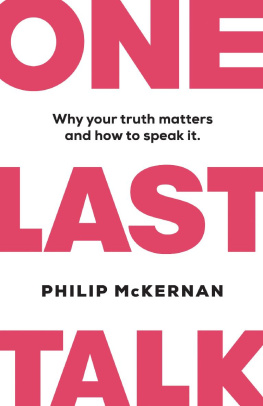
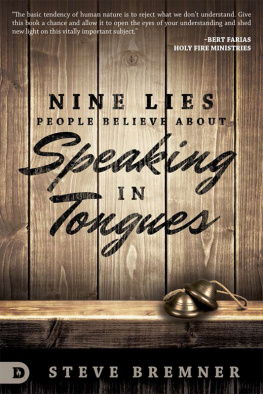

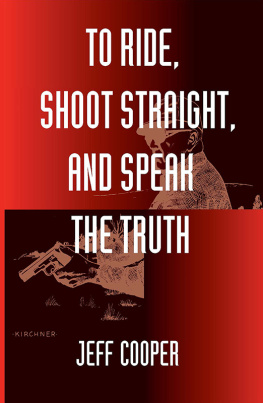
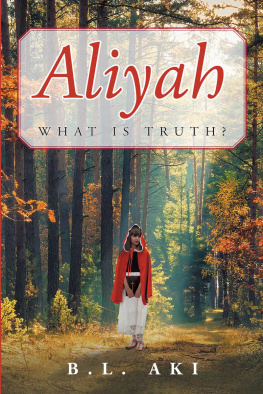
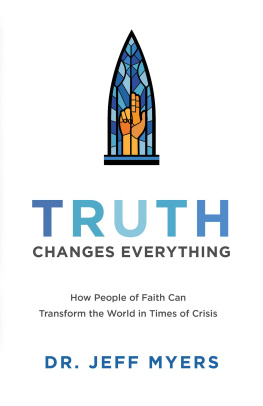
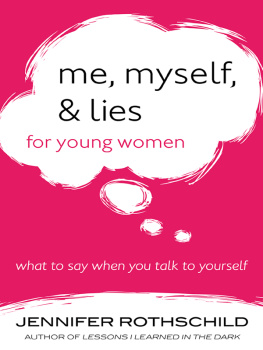
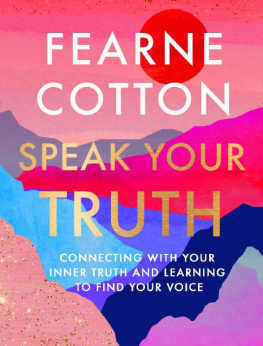
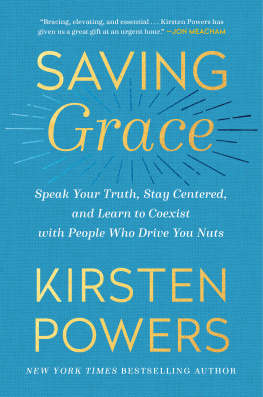
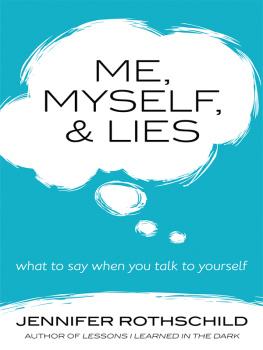
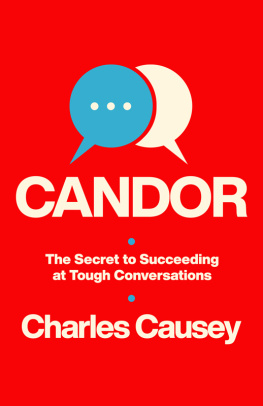

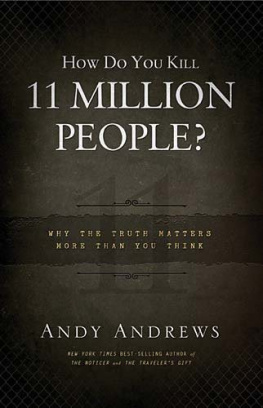
 C OPYRIGHT 2018 P HILIP M C K ERNAN All rights reserved. ISBN : 978-1-5445-0096-6
C OPYRIGHT 2018 P HILIP M C K ERNAN All rights reserved. ISBN : 978-1-5445-0096-6